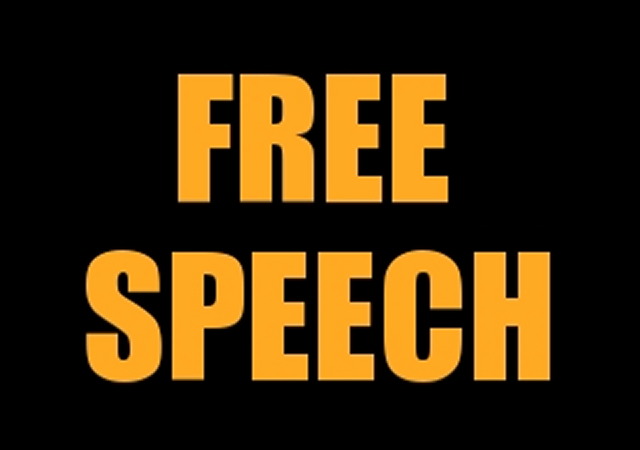University of Virginia Student Describes Culture of Self-Censorship on Campus
“my college experience has been defined by strict ideological conformity”

A University of Virginia student named Emma Camp has become discouraged with the culture of censorship on her college campus.
She writes at the New York Times:
I Came to College Eager to Debate. I Found Self-Censorship Instead.
Each week, I seek out the office hours of a philosophy department professor willing to discuss with me complex ethical questions raised by her course on gender and sexuality. We keep our voices lowered, as if someone might overhear us.
Hushed voices and anxious looks dictate so many conversations on campus at the University of Virginia, where I’m finishing up my senior year.
A friend lowers her voice to lament the ostracization of a student who said something well-meaning but mildly offensive during a student club’s diversity training. Another friend shuts his bedroom door when I mention a lecture defending Thomas Jefferson from contemporary criticism. His roommate might hear us, he explains.
I went to college to learn from my professors and peers. I welcomed an environment that champions intellectual diversity and rigorous disagreement. Instead, my college experience has been defined by strict ideological conformity. Students of all political persuasions hold back — in class discussions, in friendly conversations, on social media — from saying what we really think. Even as a liberal who has attended abortion rights protests and written about standing up to racism, I sometimes feel afraid to fully speak my mind.
In the classroom, backlash for unpopular opinions is so commonplace that many students have stopped voicing them, sometimes fearing lower grades if they don’t censor themselves. According to a 2021 survey administered by College Pulse of over 37,000 students at 159 colleges, 80 percent of students self-censor at least some of the time. Forty-eight percent of undergraduate students described themselves as “somewhat uncomfortable” or “very uncomfortable” with expressing their views on a controversial topic during classroom discussions. At U.V.A., 57 percent of those surveyed feel that way.
 DONATE
DONATE
Donations tax deductible
to the full extent allowed by law.









Comments
Sure. But what are you going to do about it?
Keep voting Democrat.
She’s not doing enough to call out her own side for causing this nightmare.
“We keep our voices lowered, as if someone might overhear us…
Hushed voices and anxious looks…
A friend lowers her voice to lament the ostracization…
His roommate might hear us, he explains.”
I must admit, I have never watched Handmaid’s Tale.
But I would imagine that a lot of it sounds just like this.
The left gets away with this because everyone else decided it’s easier to surrender. Leftists don’t fear backlash when they violate others’ rights. Maybe that should change.
It is delightful that the NYT allowed a piece warning of Leftist speech suppression!…Note, though: the NYT Opinions editor is a female who got that job at 41 and who co-endorsed Amy Klobuchar and Liz Warren for the 2020 Democratic Presidential nominee…and somehow a female UVa undergrad female was chosen to be elevated to prominence by the NYT…and that student was taking a Gender and Sexuality class in…Philosophy…taught be a female…
And the NYT piece also quotes that student as mentioning a Feminist Theory course she was taking as a sophomore…Woke-ism has so infiltrated Academe that Legal Insurrection didn’t note the ancillary issues.
Go, Hoos !!